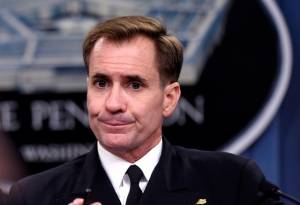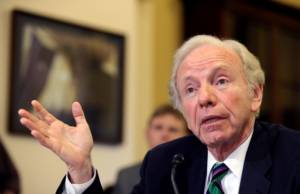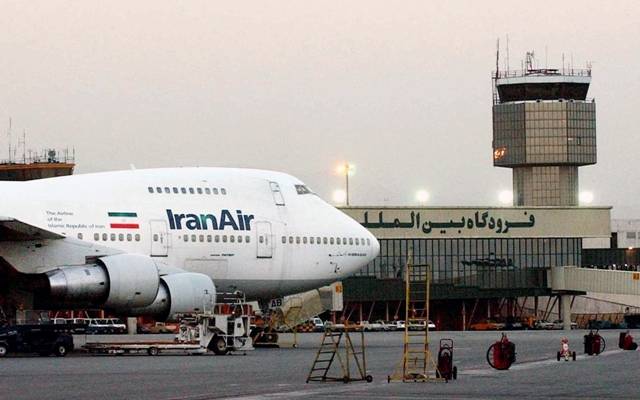While the Obama administration continues to encourage companies to close deals with Iran, United Against Nuclear Iran, a global advocacy organization focused on raising awareness about the dangers posed by the Iranian regime, warns of the “serious legal, political, financial, and reputational risks associated with doing business in Iran.”
Boeing Co. said Tuesday it signed a $25 billion agreement with Iran Air “expressing the airline’s intent” to buy its aircraft, setting up the biggest business deal between the Islamic Republic and America since the 1979 US Embassy takeover in Tehran — if it goes through.
One Iranian official has said the deal could involve 100 aircraft while another has suggested Iranian airlines may purchase airplanes worth $25 billion from Chicago-based Boeing, welcome news to workers on its massive assembly plants around Seattle.
However, the long-standing enmity between the US and Iran, as well as other sanctions and even presidential politics still could complicate any agreement — even after last year’s nuclear deal. And even if the agreement is finalized, aircraft orders are often announced at list prices, meaning the actual price tag would likely be lower as airlines typically get steep discounts.
Boeing issued a statement to The Associated Press saying that it signed the Iran Air agreement “under authorizations from the US government following a determination that Iran had met its obligations under the nuclear accord reached last summer.”
“Boeing will continue to follow the lead of the US government with regards to working with Iran’s airlines, and any and all contracts with Iran’s airlines will be contingent upon U.S. government approval,” it said.
Boeing’s statement offered no further details. Fakher Daghestani, a Dubai-based spokesman for the manufacturer, declined to elaborate.
Obama Administration Welcomes Dealings with Tehran
State Department spokesman John Kirby said, “The State Department welcomes Boeing’s announcement of this deal with Iran Air, which involves the type of permissible business activity envisioned in the Joint Comprehensive Plan of Action. Boeing has been in close contact with the State Department regarding this deal. We committed, as you know, to license sales of civil passenger aircraft and will continue to implement this in all of our JCPOA commitments.”

State Department skoseman John Kirby. (AP/Susan Walsh)
He added that, “The JCPOA provides an opening for civil aviation companies, including American companies, to pursue legitimate commerce with Iran, and we note reports of progress in the aviation sector, which is good both — for both the economy and for public safety.”
Asked to react to Boeing’s assertion that the company had signed the Iran Air agreement under authorizations from the US government, the Treasury Department said it does not comment on specific entities in such business scenarios.
Earlier Tuesday, Iran’s Transportation Minister Abbas Akhoundi said possible deals between the Islamic Republic and Boeing could be worth as much as $25 billion, on par with the country’s earlier agreement with its European rival, Airbus. That deal was for 118 new planes. Iran also has ordered 20 airplanes from French-Italian aircraft manufacturer ATR.
“The initial talks were held and I can say Boeing is negotiating with the US officials and possibly the amount of our purchase is equal to Airbus,” Akhoundi said.
If the deal goes through, the first Boeing plane could arrive in Iran in October.
Some analysts were skeptical that Iran will ever take delivery of so many jets.
“A $25 billion deal delivered by unicorns — flying unicorns,” said Richard Aboulafia, an analyst with the Teal Group Corp. “Some planes may or may not be delivered but everyone has a huge interest in inflating the likelihood of this happening. Airbus and Boeing are desperate for a growth story and the Iranians love commercial opportunities for political leverage.”
Aboulafia said the market faces too much competition from Etihad, Emirates and Qatar — the rapidly-growing airlines directly across the Persian Gulf from Iran.
Iran Air, whose website lists 43 airplanes in its fleet, has direct flights to 35 international destinations, including London. The European Union eased its restrictions on Iran Air last week.
In the past 12 months, global airlines have scheduled 150,000 flights to and from Iran, with 22.7 million available seats, according to schedule tracking service Diio Mi. It is unclear how many of those seats were actually filled. By comparison, during that same period, there were 250,000 flights to and from Poland, a country with a similar GDP but roughly half the size of the population, with 34 million available seats. The world’s largest aviation market, the United States, had nearly 10 million scheduled flights.
Iranian airlines have some 60 Boeing airplanes in service, but most were purchased before the 1979 Islamic Revolution that ousted Shah Mohammad Reza Pahlavi and brought Islamists to power.
Out of Iran’s 250 commercial planes, 162 are flying while the rest are grounded due to lack of spare parts, Akhoundi said Tuesday. Parts and servicing remained nearly impossible to get while the world sanctioned Iran over its contested nuclear program.
Boeing has been cautious about entering Iran’s market as other sanctions remain in place against Tehran. American officials had said as recently as last weekend that the sale would need clearance from the US Treasury.
Included in last year’s nuclear deal, which limited Iran’s uranium enrichment in exchange for sanctions to be lifted, is approval for airline manufacturers to enter the Iranian market. However, American lawmakers have warned Boeing not to do business there as the Iran deal remains a hot topic in the ongoing presidential election.
At issue as well is Iran and America’s long-standing suspicion of each other as the two countries haven’t had direct diplomatic relations since 1979. For Americans, it is the US Embassy takeover during the Islamic Revolution and its blacklisting of Iran as a state sponsor of terrorism. For Iranians, it is the American- and British-backed 1953 coup that installed the shah, as well as the US Navy’s 1988 downing of an Iran Air commercial jet heading to Dubai.
Since the nuclear deal, Iran also has conducted ballistic missile tests, launched rockets near US warships in the Persian Gulf and briefly captured 10 American sailors. The Shiite power also has seen relations deteriorate with the Sunni kingdom of Saudi Arabia, a major US regional ally.
Iran’s Supreme Leader Ayatollah Ali Khamenei has expressed his continued distrust of America.
Iran Supports Terrorism and Brutality

Former Sen. Joe Lieberman. (AP/Susan Walsh)
On Tuesday, United Against Nuclear Iran (UANI), a global advocacy organization focused on raising awareness about the dangers posed by the Iranian regime, issued a strong warning to French companies considering doing business in that country. The warning coincides with the visit of Iranian Foreign Minister Mohammed Javad Zarif to Paris.
UANI has directly contacted corporations around the world–including French companies Airbus, Air France and Renault -regarding the risks of business in Iran. Airbus, for example, is attempting to finalize a deal to sell more than 100 aircraft to Iran for an estimated $27 billion, but is having difficulty doing so with leading international banks that are refusing to facilitate transactions with Iran due to the severe risks involved.
“The Iranian regime is making every effort to convince French companies that Iran is a safe place to do business,” said UANI CEO Ambassador Mark D. Wallace. “However, Iran’s history of money laundering, support for terrorism, and brutality against its own citizens suggests otherwise. French companies – given past terrorist attacks against France, its citizens, and its interests – would be wise to carefully consider the profound legal, financial, and reputational risks of doing business in Iran.”
“It is next to impossible for foreign companies to ensure that when doing business in Iran, they are not unwittingly doing business with the Islamic Revolutionary Guard Corps (IRGC), a terrorist organization sanctioned by the international community whose tentacles reach into every key Iranian industry,” said UANI Chairman Senator Joseph I. Lieberman. “When the benefits and risks are weighed objectively, it simply isn’t worth it.”
By: AP and United with Israel Staff
